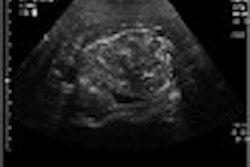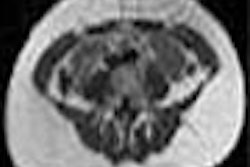Hot on the heels of a German report, Dutch mammographers are sharing positive results from their MRI breast cancer screening trial. A study conducted at the Erasmus Medical Center in Rotterdam involved 1,874 high-risk women in whom MRI was deemed a useful screening tool, especially for those with BRCA genetic mutations.
Moreover, aggressive screening of in this population "reduces breast cancer mortality," said lead investigator Dr. Jan G. M. Klijn, Ph.D., during a presentation last week at the American Society of Clinical Oncology meeting in Chicago.
The Dutch MRI Screening Study followed the women for two years with MRI exams every 6 months. Three hundred twenty-two of the women had BRCA1 or BRCA2 mutations, while 1,065 women were considered high-risk due to either family or personal history, he said. The remaining 487 women were at normal risk.
"We identified 44 breast cancers, 34 of which were invasive, as well as one incidental lymphoma," Klijn said. "Moreover, 42% of the tumors detected were less than one centimeter in diameter and 50% of the tumors were node-negative" he said.
As expected, the MRI detection rate was highest in women with BRCA1 or BRCA2 mutations. "The detection rate in women with germline mutations was 35.9 per 1,000 women years, compared to 9 per 1,000 women years in women who were high- risk, but not BRCA1 or BRCA 2 and 9 per 1,000 women years in women at normal risk," he said.
Self-exam detected 16% of tumors, while mammography detected 36% compared to an 83% detection rate for MRI. However, as with a study out of Memorial Sloan-Kettering Cancer Center in New York City, the Dutch team also found that MRI screening suffered from low specificity.
"Specificity for MRI was 88% compared to 97% for clinical breast examination and 95% for mammography. I think it is too soon to give up mammography," Klijn said.
Nonetheless, based on the results, "we are recommending routine use of MRI in addition to mammography in women with proven mutations in BRCA1 or BRCA2," Klijn said. These women receive the greatest benefit from MRI because they are more likely to have "aggressive, fast-growing tumors and these tumors occur in young women with dense breast tissue that is associated with occult lesions MRI’s increased sensitivity overcomes these concerns," he said.
In comments following the presentation, Dr. William Gradishar from Northwestern University’s Feinberg School of Medicine in Chicago said the results were encouraging. Gradishar is an associate professor of medicine, division of hematology and medical oncology.
Turning to his own practice, Gradishar said, "the number one question I get from my patients is: ‘Is there some other test I can have?’ And the next question is, ‘Is there something else I can do to prevent this disease?’" He said the findings from the Dutch study suggest that MRI might someday be the answer to both questions.
By Peggy PeckAuntMinnie.com contributing writer
June 18, 2003
Related Reading
German study finds MRI superior for breast cancer detection in high-risk women, June 3, 2003
MRI highly sensitive for breast cancer, but lacks needed specificity, June 3, 2003
High breast cancer risk may warrant MR screening rather than mammography, May 7, 2003
Tips and techniques make MRI feasible for breast centers, March 20, 2003
Copyright © 2003 AuntMinnie.com




















